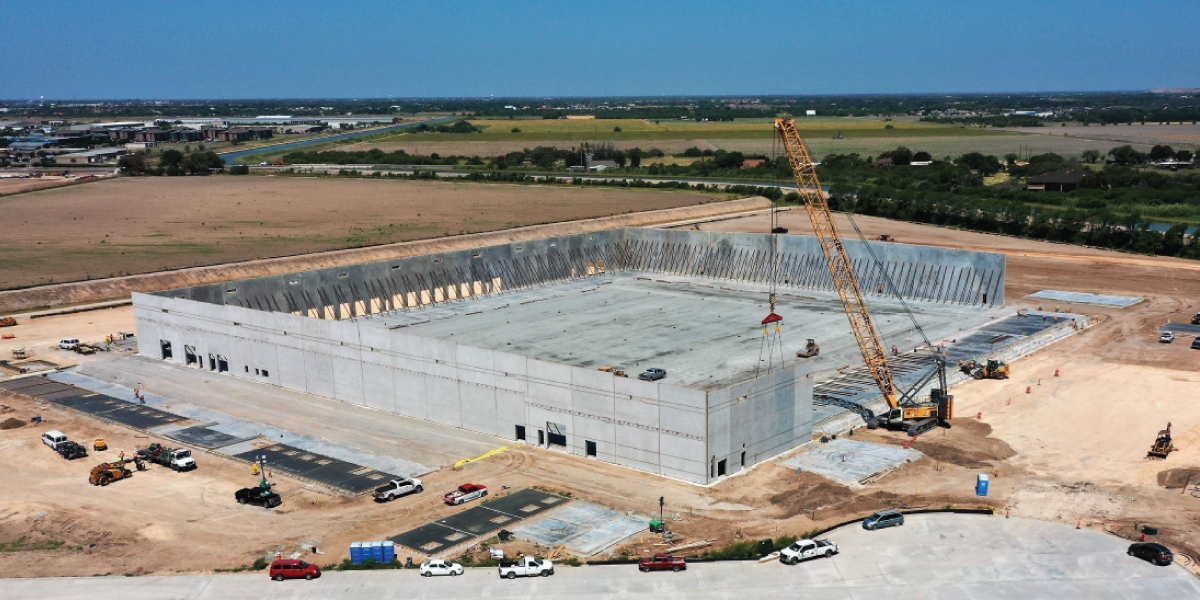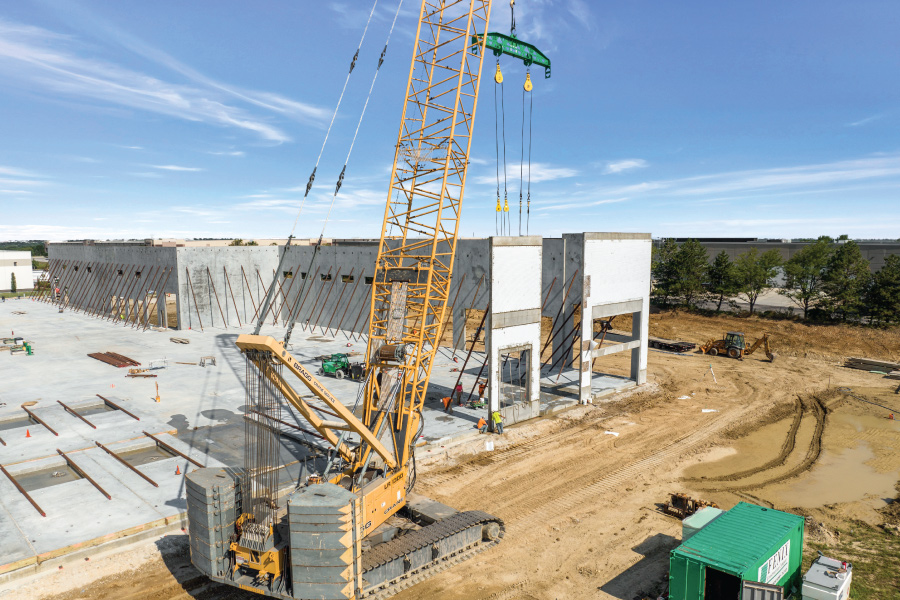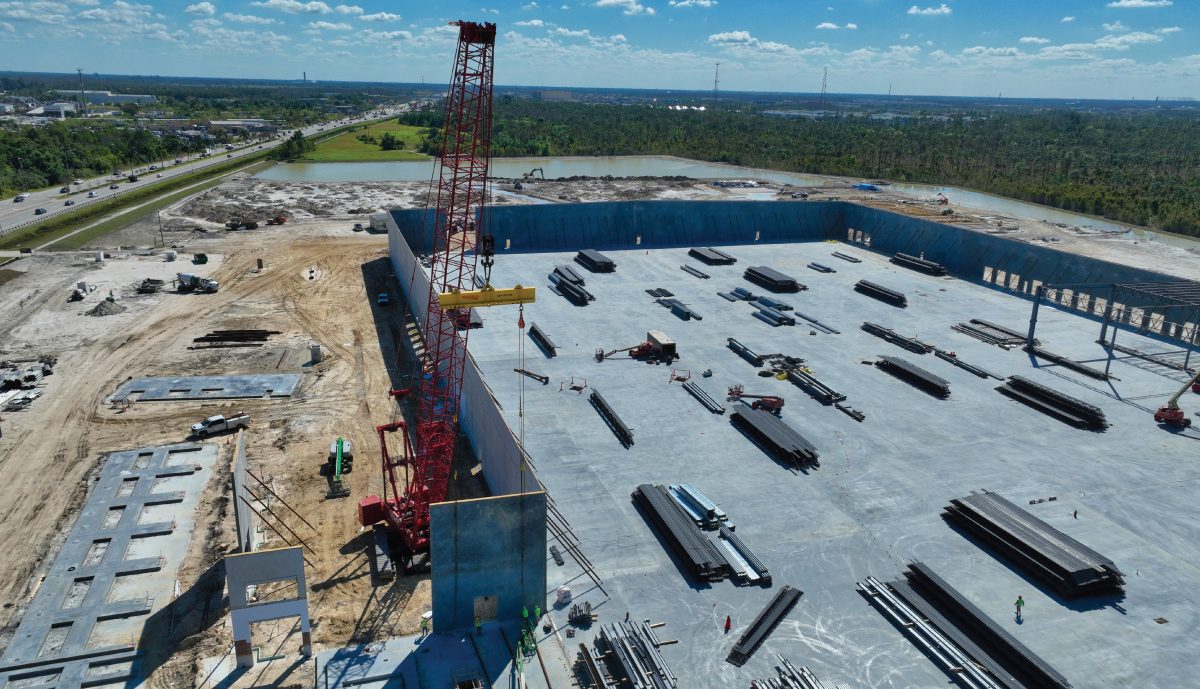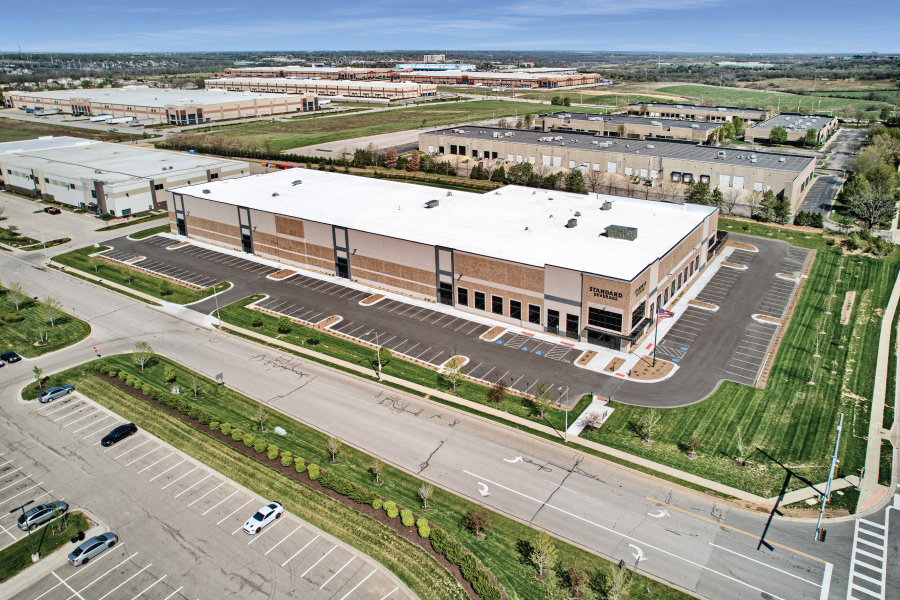Blog
Associate Member Viewpoint: Advantages of Tilt-Up Construction Over Pre-Engineered Metal Buildings for Beverage Distribution Facilities
When building a new beverage distribution facility, choosing the optimal structure type is crucial. Tilt-up construction is often the most advantageous solution compared to pre-engineered metal buildings, especially for facilities where precise temperature control, durability, energy efficiency, and operational flexibility are crucial. Concrete’s inherent strengths in durability, thermal performance, fire resistance, design flexibility, and long-term cost savings make it ideally suited to meet the unique challenges and demands of beverage distribution operations. While initial considerations such as upfront costs and site constraints should be evaluated, the overwhelming benefits of tilt-up construction make it ideal for ensuring the long-term success, efficiency, and future flexibility of a new facility.

Pictured: 253,200 SF Beverage Distribution Facility for Glazer’s Beer & Beverage in Weslaco, Texas
Structural Integrity & Durability
Tilt-up construction generally provides superior structural integrity, durability, and longevity compared to pre-engineered metal buildings. Concrete structures are robust and can withstand heavy loads and impacts, which is important for warehousing operations. The durability of concrete is especially important in harsh environmental conditions or high-wind areas.
For beverage distributors in coastal areas or regions prone to severe weather and wind, such as the Midwest and West, the durable characteristics of tilt-up are especially beneficial, as steel buildings are more susceptible to damage or corrosion and require more maintenance. Unlike pre-engineered metal buildings that may develop vulnerabilities due to the assembly of multiple components, concrete walls provide a solid, continuous barrier that enhances structural integrity and requires minimal maintenance.
Thermal Performance & Energy Efficiency
For most beverage distributors, temperature control within a conditioned warehouse is crucial. Tilt-up construction is a much more functional solution for achieving optimal storage temperatures for various product types compared to pre-engineered metal buildings, as concrete’s innate thermal mass properties contribute significantly to maintaining stable indoor temperatures. These benefits can be compounded with the use of insulated tilt panels, further enhancing energy efficiency. Conversely, pre-engineered metal buildings often require additional insulation to achieve comparable thermal performance, resulting in higher HVAC operational expenses over time. This helps improve the overall energy efficiency of the building and decreases the load on HVAC systems.

Pictured: 83,000 SF Beverage Distribution Facility & Corporate Office for Standard Beverage in Lenexa, Kansas
Underconstruction and Completed
Design Flexibility
Concrete also offers greater architectural flexibility with reveals, accent bands, brick/stone inlays, formliners, bump-out panels, varying panel heights, accent panels, and more.

Pictured: 373,528 SF Beverage Distribution Facility for Suncoast Beverage Sales in Fort Myers, Florida
Fire Resistance & Safety
Key Considerations
When choosing a building structure type, there are several key items that should be considered, such as cost, building size, location, and future flexibility. While initial construction costs for tilt-up buildings may be higher compared to pre-engineered metal buildings, long-term operational costs should be considered in addition to initial capital investment. Energy, maintenance, and alterations can all have significant cost impacts; tilt-up construction provides significant long-term cost savings in these categories, which can help offset the initial upfront investment.
Building size is also an important factor to consider. While steel is a more costly material, the fixed costs associated with tilt-up are higher. However, at certain sizes, the considerably lower material costs of tilt can outweigh the additional fixed costs. Location and site size also play a role in choosing between tilt-up construction and a pre-engineered metal building. While tilt-up buildings can be more difficult to achieve on smaller sites, experienced contractors like ARCO Beverage Group have the expertise to make it possible.
The ARCO Beverage Group Advantage
ARCO Beverage Group is a premier, full-service design-build general contractor with more than 30 years of experience providing beverage industry clientele with complete construction services throughout the United States. As the nation’s largest builder of beverage distributorships, ARCO has constructed or made modifications to over 210 beverage facilities nationwide. From new distributorships to expansions and renovations, our team is expertly knowledgeable in the specifications and requirements for beverage facilities to run efficiently and successfully.
ARCO’s proven design-build approach combines quality of design and construction, management of expense, and adherence to schedule into a single point of responsibility. We offer preliminary design at no cost to our customers to remove the risk of substantial upfront costs.
